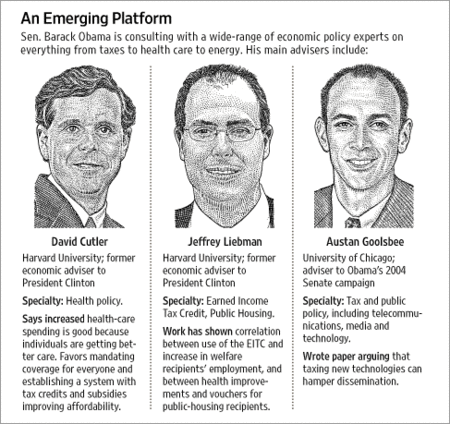Please note that the commentary excerpted below was published on the Op-Ed page of the New York Times, and was written by two policy experts at the Brookings Institute, the leading think-tank of the Democratic party.
Washington. VIEWED from Iraq, where we just spent eight days meeting with American and Iraqi military and civilian personnel, the political debate in Washington is surreal. The Bush administration has over four years lost essentially all credibility. Yet now the administration’s critics, in part as a result, seem unaware of the significant changes taking place.
Here is the most important thing Americans need to understand: We are finally getting somewhere in Iraq, at least in military terms. As two analysts who have harshly criticized the Bush administration’s miserable handling of Iraq, we were surprised by the gains we saw and the potential to produce not necessarily “victory” but a sustainable stability that both we and the Iraqis could live with.
After the furnace-like heat, the first thing you notice when you land in Baghdad is the morale of our troops. In previous trips to Iraq we often found American troops angry and frustrated — many sensed they had the wrong strategy, were using the wrong tactics and were risking their lives in pursuit of an approach that could not work.
Today, morale is high. The soldiers and marines told us they feel that they now have a superb commander in Gen. David Petraeus; they are confident in his strategy, they see real results, and they feel now they have the numbers needed to make a real difference.
Everywhere, Army and Marine units were focused on securing the Iraqi population, working with Iraqi security units, creating new political and economic arrangements at the local level and providing basic services — electricity, fuel, clean water and sanitation — to the people. Yet in each place, operations had been appropriately tailored to the specific needs of the community. As a result, civilian fatality rates are down roughly a third since the surge began — though they remain very high, underscoring how much more still needs to be done.
. . .
In war, sometimes it’s important to pick the right adversary, and in Iraq we seem to have done so. A major factor in the sudden change in American fortunes has been the outpouring of popular animus against Al Qaeda and other Salafist groups, as well as (to a lesser extent) against Moktada al-Sadr’s Mahdi Army.
These groups have tried to impose Shariah law, brutalized average Iraqis to keep them in line, killed important local leaders and seized young women to marry off to their loyalists. The result has been that in the last six months Iraqis have begun to turn on the extremists and turn to the Americans for security and help. The most important and best-known example of this is in Anbar Province, which in less than six months has gone from the worst part of Iraq to the best (outside the Kurdish areas). Today the Sunni sheiks there are close to crippling Al Qaeda and its Salafist allies. Just a few months ago, American marines were fighting for every yard of Ramadi; last week we strolled down its streets without body armor.
For the full commentary, see:
(Note: ellipses added.)


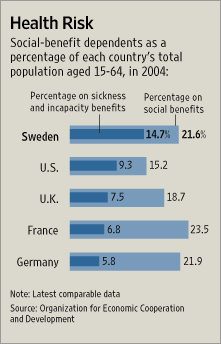 Source of graphic: online version of the WSJ article cited below.
Source of graphic: online version of the WSJ article cited below. A former Swedish teacher who had been receiving government disability payments for being allergic to electricity. Source of photo: online version of the WSJ article cited above.
A former Swedish teacher who had been receiving government disability payments for being allergic to electricity. Source of photo: online version of the WSJ article cited above.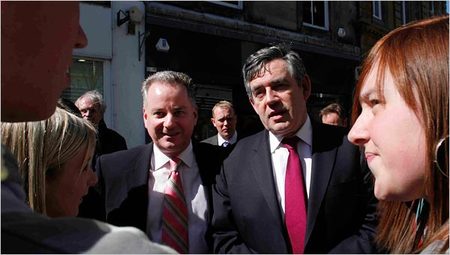
 Source of the map: online version of the NYT article cited above.
Source of the map: online version of the NYT article cited above.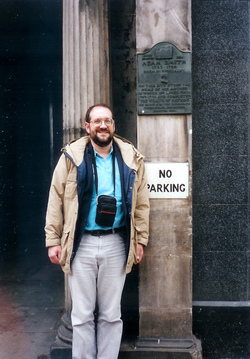
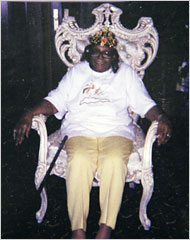 "The victim, Kathryn Johnson, was described as either 88 or 92." Source of caption and photo: online version of the NYT article cited below.
"The victim, Kathryn Johnson, was described as either 88 or 92." Source of caption and photo: online version of the NYT article cited below. 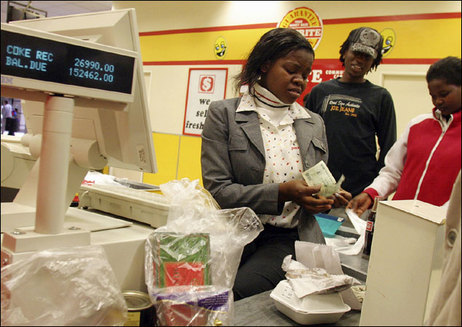
 Dubai skyline. Source of photo: online version of the WSJ commentary quoted and cited below.
Dubai skyline. Source of photo: online version of the WSJ commentary quoted and cited below.